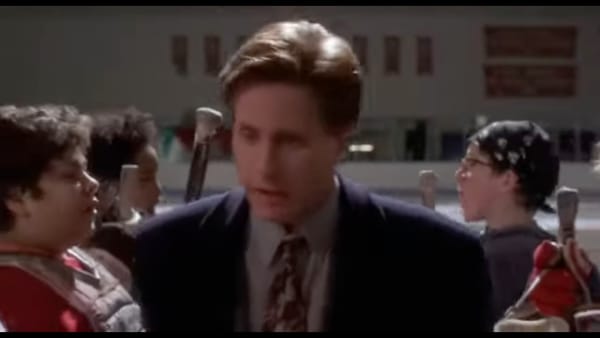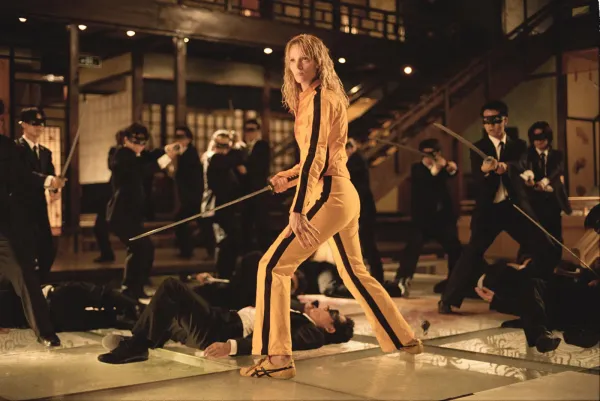🏃 Short Answer Sprint
For this week's rebroadcast, we highlight some evergreen questions from readers in 2007.

I am a beginning screenwriter and I am very intimidated by plot design. I love reading good screenplays because the plots seem like clever puzzles where each piece fits snugly but unexpectedly into a grand scheme. When I try to construct plots on my own, however, I feel they seem contrived and unrealistic. It seems like a very intellectual process to me, even though the ultimate goal is an emotional one. Do you have any advice for someone struggling with this? I’ve read about three books on screenwriting, and they make plot structure seem so basic, but it doesn’t feel that way when you’re creating from scratch. Any helpful words from you will probably do a lot for me.
— Jim
Screenwriting books make everything seem so tidy, when actual screenwriting is gory and difficult. Plot and structure are really just the answer to a single question: what happens when?
Look at your story from your main characters’ perspectives. What are they trying to do at each moment in the script? What do they know, and what do they learn?
Then look at it from the audience’s perspective. What do they know, and what do they expect will happen next?
A good plot keeps surprising both the main characters and your audience. Probably the reason your plots feel contrived is that you’re trying to drag your characters through some pre-determined series of structural benchmarks, rather than focusing on what’s interesting and surprising right now in this scene.
If a friend or co-worker tells you an anecdote, or describes a character eccentricity of one of her relatives, and you use it in a screenplay are there any legal ramifications? I have no intention of using the name of the friend’s relative (I don’t know it), but the story and the relative are so funny and eccentric, respectively, that a very amusing character could be made from them. Do I need to get my friend’s permission to use this information?
— Derek
Legally, no. Ethically, yes. Particularly if said friend is a writer who might be planning to use it herself. I borrowed an anecdote from a screenwriter friend in Go: the moment when Simon accidentally sets the hotel room on fire. I changed pretty much everything about it, but I checked with him first to make sure he wasn’t planning on using it.
I’m in early discussions with a producer about writing a biopic. One thing that has come up in these discussions is the producer’s insistence that the movie adhere to a traditional three act structure and not be ‘episodic’ – and I agree with him in principle (I’m frequently dissatisfied by biopics for this very reason), but I also feel that the complicating factor in this case is that lives simply don’t unfold in three acts – they are, by their very nature, episodic. I was curious as to how you might approach this kind of assignment in terms of finding a three-act story within an episodic sequence of ‘true’ events.
— M
History is history. Movies are stories, and good stories have forward momentum. Your challenge is finding the thread(s) that keep the main character working towards a goal, with obstacles, setbacks, and moments of success. And that may not be possible. There are many remarkable people whose lives are surprisingly resistant to dramatic staging.
Amadeus succeeds because they elevated a fairly minor character in his life (Salieri) and told a largely fictionalized story through his eyes.
Don’t try to tell the story of a great person’s life. Tell a great story using the details of a person’s life.
I’m writing a scene between a Chinese immigrant woman and a man from Mexico. Both characters speak in broken English, and I’m wondering how to correctly write broken English with a Chinese accent and speaking pattern, as well as how to do it for other languages. Do you just write the dialogue in “good English” and then somehow note that the character has a thick Chinese accent? How would you tackle this challenge and could you a-- some example or two?
— Jules
When writing non-standard English, you walk a fine line between “giving the flavor” and “annoying the reader.” So here’s the simple advice:
- Use the speaker’s words
- Use the speaker’s grammatical structure
- Don’t try to duplicate the exact speech pattern on paper
If you have more than two apostrophes in a line of dialogue, you’re probably overdoing it.
I read in your comments, some time ago, that you had a mix tape you listened when you wrote for “Go” to help you get in the right mood. Did any of that music find its way into the movie? If so, how did that happen? ex. did you suggest it to the music director? If not, why not? Wasn’t it a key factor in setting tone for you?
— Dan
None of those songs made it in the movie — and that’s fine. A playlist is a great way to help capture a certain tone while you’re writing, particularly when you need to get back into a mood. But it’s really just for your own preparation.
Screenwriting is a lot like acting in that way, incidentally. Actors often have touchstones to help them get back into a role. Music is a great one.
Link to original: https://johnaugust.com/2007/short-answer-sprint




